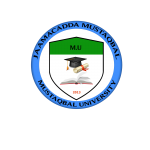Bachelor of Medical Laboratory Science
The Bachelor of Medical Laboratory Science (BMLSc) degree was introduced to meet the needs of the medical diagnostic laboratory profession for a science-based academic qualification. The four-year programme includes a comprehensive grounding in health sciences and specialized training in the various laboratory testing disciplines.
Competencies
• Explain the principles underlying clinical laboratory testing, including the pathological indications for performing specific laboratory tests
• Understand quality system planning, including quality control and method validation, as applied to the laboratory setting
• Interpret a wide array of patient laboratory values and note when values are abnormal or erroneous
• Interpret and understand new protocols, technologies and advances in the field in order to practice and respond to evidence-based changes in medical laboratory science
• Perform a wide variety of laboratory tests from low to high complexity
• Troubleshoot laboratory assays, identifying and correcting potential problems
• Correlate clinical laboratory results with differential diagnoses
• Demonstrate safe working practices and recognize patient samples as valuable extensions of the patient, placing the needs of the patient first
• Perform quality control of patient laboratory tests and apply quality-assurance methodology to assure accuracy of laboratory testing
• Communicate patient test results clearly and accurately to clinicians
• Perform work efficiently and accurately under the pressure of time constraints and be able to multitask
• Adhere to the student policies of the Medical Laboratory Science Program and Mayo Clinic School of Health Sciences
• Display professionalism in communication and dress and show respect for colleagues and superiors
• Demonstrate tolerance and establish effective working relationships with others from diverse backgrounds, including age, race and gender
• Work effectively as a team member or independently as required to accomplish the goals of the work unit (laboratory)
• Demonstrate advocacy in the field of laboratory medicine, seeking to engage in activities that help to increase the awareness, status and quality of the medical laboratory science profession
• Value self-directed learning, maintain board certification, and participate in ongoing continuing education to increase and update knowledge of laboratory medicine
Program Duration
This is a four-year program. Every academic year consists of two 24-week semesters of 20 weeks for theory and 4 weeks for practical field attachment.
Admission Requirements
Admission criteria in health training programmes have far-reaching implications in education and training processes and the outcomes of such programmes, thus, the graduates and the quality of health services. Consideration of the admission requirements to the Community Health Nurse programme is in light of the prevailing health situation in Somalia.
Candidates for direct or in-service admission into the course programme must possess the stipulated qualification requirements in Somalia, and the equivalent, especially in neighboring countries.
Any student seeking admission from any MU Department of Nursing to pursue the course should fulfill the following requirements:
1. Be not younger than 18 years of age.
2. Submit secondary leaving certificate with minimum average marks of not less than 60% from recognized school and umbrella and passed the Somali Government centralized exam.
3. Application for admission.
4. Pay the registration and enrollment fees as per required.
5. Fill the application form fittingly.
6. Successfully pass the university entrance examination,
7. Bring the following documents with you:-
a. Original secondary certificate (both from the school & the government)
b. Original national identity card/passport/birth certificate
c. Two (2) certified clear sets of photocopies of (a) and (b)
d. Seven (7) certified passport sized photos
Assessment Approaches
Formative
Formative assessment is used as a bridge between learning and teaching. It allows instructors to gather real data about students as they work, then adjust their instruction to better serve students at their current learning level. In nursing education, formative assessment has been proven to be highly effective not only for student learning, but for faculty teaching and, as a result, increases the overall quality of learning.
Formative assessment used in the department include; Continuous Assessment Tests, Assignments, Quizzes, Random Assessment Tests, End of Semester Examinations and Supplementary Examinations.
Summative
The goal of summative assessment is to evaluate student learning at the end of an instructional unit/module. Summative assessment include; Final Qualifying Examinations (theory), Final Qualifying Examinations (theory and practical), End of Semester Examinations, and Promotional Examinations.
Teaching Approach/Strategies
Teaching approach is a set of principles, beliefs, or ideas about the nature of learning which is translated into the classroom while teaching strategy is a long term plan of action designed to achieve a particular goal. These include the following; Informal Lectures/Discussions, Modified Lectures, Group Discussion, Small Group Discussions, Demonstrations and return demonstration, Role plays, Team Teaching, Project Assignments, Case Presentations, Nursing Care Studies, Self-Directed Learning, Programmed Learning, Simulations, Educational Trips, Film Shows and Problem Based Learning.
Teaching Aids/Instructional Materials
Include the following; Chalk Board, White Board, Flip Chart , Flip Charts Stand, Posters, Poster Stand, Videos, Videos tapes, Video camera, Slides, Slide Projectors, Models of various body parts/organs, Study guides, Lesson plans, Course outlines, Computers, Laptops, LCD projectors, Over Head Projectors, Human Skeleton, Dummies, Human Skeletons, Manikins, Simulators, Real Human Beings (Simulated Patients), Microscopes, and Real Human Body Parts.
